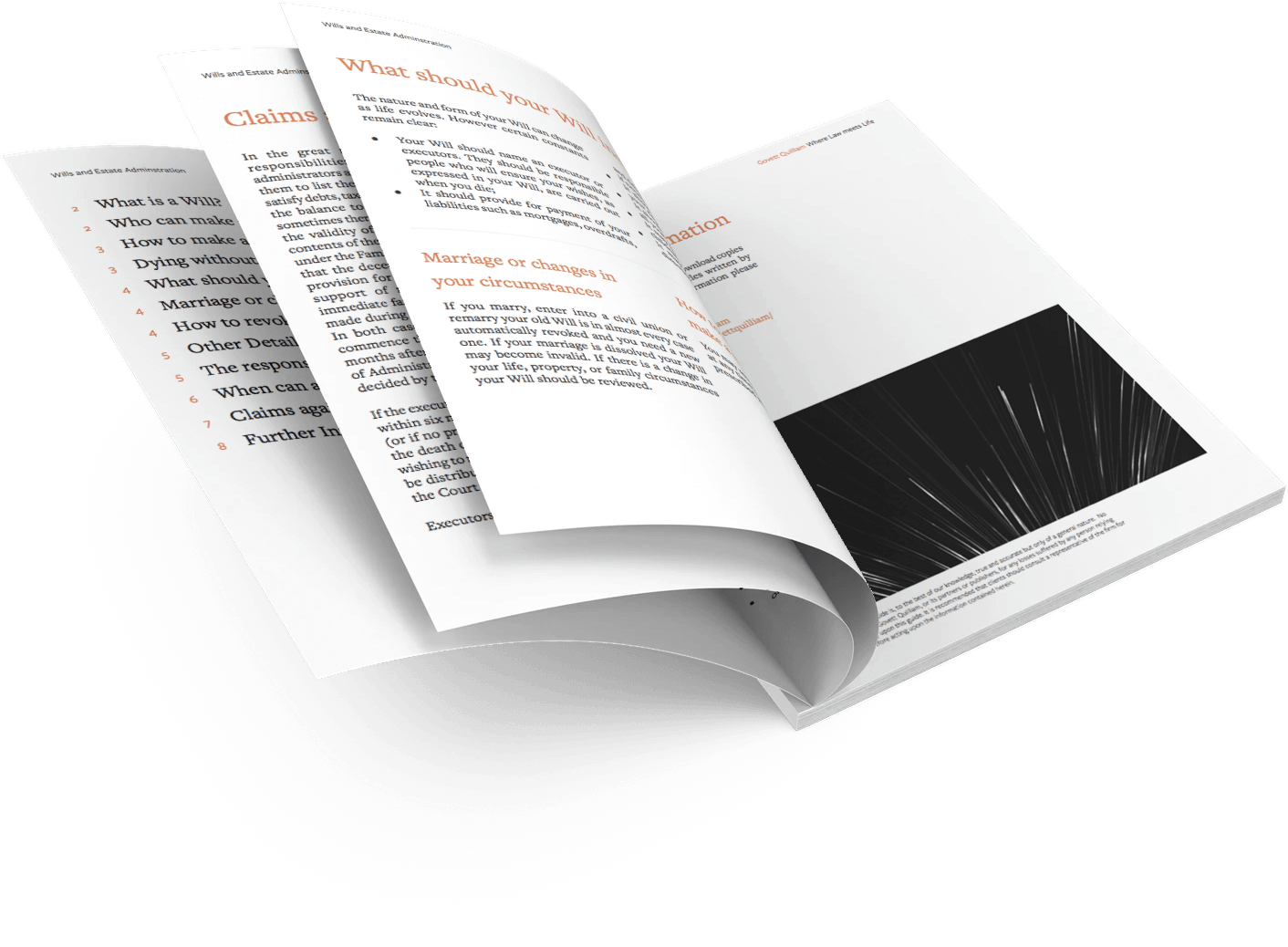Related Posts

High Court Decision Strengthens Caselaw Upholding Tikanga As Unique Source Of Law

What Are My Responsibilities As A Trustee Of A Māori Land Trust?

Tax Treatment Of Māori Authorities

Law changes for rates and Māori land

Peter Ellis appeal: treatment of tikanga Māori within our legal system

A 2017 independent survey reported around 1,500 New Zealanders every year die without a Will. Thinking about your own personal mortality can be difficult however, having a Will allows you to have a say about what happens to your assets after you have passed.
A common misconception is that your property and assets will automatically go to your next of kin if you do not have a Will. If there is no Will there could be accidental outcomes.
This article takes you though some simple questions and steps when considering making a Will, what you should include and the outcomes of dying without a Will.
Who can have a Will?
Any person of sound mind who is at least 18 years old, married, in a de facto relationship or has entered into a civil union can make a Will. A Judge or the Public Trustee can also approve the making of a Will by anyone between the ages of 16 and 18 years.
When do I need a Will?
In short, if you hold more than $10,000 in assets it is worthwhile getting a Will. A Will is also recommended when you own property, have children or you want to make special arrangements for people when you die.
We recommend you review your Will when your circumstances change. This could mean after you are considering marriage (or have recently been married as after marriage a Will is revoked unless made in contemplation of marriage) or divorce, have bought property, gaining assets such as investments or having young children. The current global pandemic has provided further reason to get your Will and other affairs in order.
What should our Will include?
The nature and form of your Will can change as life evolves. However certain constants remain clear:
- Your Will should name an executor or executors. They should be responsible people who will ensure your wishes, as expressed in your Will, are carried out when you die;
- It should provide for payment of your liabilities such as mortgages, overdrafts, and debts. We can advise you on insurance if necessary;
- It should make adequate provision for your dependents;
- It should provide for the distribution of all your property and possessions;
- It may appoint guardians of your infant children after your death;
- It may contain any specific funeral directions you wish to make.
Dying without a Will
If a person dies without making a Will, that person is said to have died intestate that is, die without a Will. A surviving wife, husband, civil union partner, de facto partner, children or immediate family usually inherits the deceased’s money, property and possessions in set proportions as set out in the Administration Act 1969. Such distribution may not be what the deceased would have wished and may cause hardship and unwarranted stress.
A de facto partner’s right to receive a share in the estate, if the deceased had no Will, is provided for in the Property (Relationships) Act 1976. A claim would have to be made within six months of the granting of Probate or Letters of Administration or six months after the date of death if the estate is a small estate.
By creating a Will as part of your own personal planning, you have a say over the distribution of your assets. It is important to seek advice from a lawyer to ensure your specific wishes are recorded in your Will.
For more detailed information download our free ‘Wills and Estate Administration’ e-booklet below or contact our Personal Planning Team (Wills, Estates and Trusts) via 06 768 3795.


.png)

